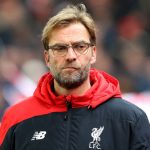A group of 30 top players will face random drugs tests five times a year under a plan to tighten English football’s controls on the use of performance-enhancing and recreational drugs, it emerged on Tuesday.
UK Sport, the body responsible for doping control in the United Kingdom, is planning to create a register of 30 players who will have to be available for testing every day of the year.
Andy Parkinson, UK Sport’s head of operations for a drug-free sport, told The Sun newspaper that the aim was to protect the image of the game by bringing football’s controls into line with the more stringent regimes in place in athletics and cycling.
“The last thing we want is for football to be in that position where it doesn’t focus enough – doesn’t put controls in place – and suddenly finds itself a sport with a fantastic profile in a crisis,” he said.
Parkinson said UK Sport would be finalising the first list of players to be tested in consultation with the Football Association with a view to introducing the new regime from July, 2009.
At present, doping controls in English, European club and international football are based on two players being selected randomly to provide urine samples after matches.
Under the new system, players on the list could be asked to undergo additional tests during their holidays or when they are out of action due to injury.
“Players have licence to take anything they want in the summer as they disappear off our radar,” Parkinson added. “Under this, they could be in Barbados and we can still test them.”
The existing drug control regime in football has produced little evidence of doping being commonplace in the sport with positive tests for recreational drugs more common.
Chelsea sacked Australian goalkeeper Mark Bosnich after he tested positive for cocaine in 2002 while Romanian striker Adrian Mutu was dismissed in 2004 after a test initiated by the club revealed that he had also being using the drug.
English football’s most high-profile doping scandal involved England defender Rio Ferdinand, who was banned for eight months and missed Euro 2004 after skipping a doping test at Manchester United’s training ground in 2003.
Ferdinand insisted that he had simply “forgotten” to undergo the test but he would be automatically banned for two years under current rules and his past means he could be one of players targetted for the new testing regime.
- Soccer News Like
- Be the first of your friends!




















ABOUT THE AUTHOR
SoccerNews
Soccernews.com is news blog for soccer with comprehensive coverage of all the major leagues in Europe, as well as MLS in the United States. In addition we offer breaking news for transfers and transfer rumors, ticket sales, betting tips and offers, match previews, and in-depth editorials.
You can follow us on Facebook: Facebook.com/soccernews.com or Twitter: @soccernewsfeed.